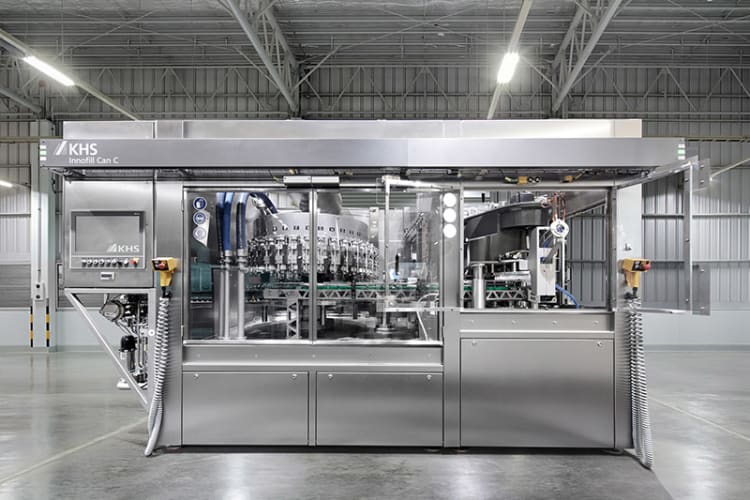Made possible by Teflon
It’s worth taking a look at the details, both of the Innofill Can DVD and the Innofill Can C. One key prerequisite needed to achieve the required level of flexibility is the choice of the right sealing material for the expansion joint seal. “We continue to rely on Teflon here,” says Härtel. “This material can be excellently cleaned, gives our valve seals a much longer service life and doubles the change intervals with the added bonus of much shorter changeover times.” Looking at the range of materials on offer, however, what’s most important is that PTFE absorbs practically no flavoring substances – unlike standard seals made of elastomers such as EPDM that soak up liquid like a sponge during production. When there’s a drop in concentration with the next product in the filling sequence, the EPDM again releases these flavorings. In order to prevent this unwanted effect, production has to be scheduled by flavor. “The week thus starts off with a mineral water, for instance, and ends with the filling of a product with an intensive taste, such as an energy drink. With our filling valves the transfer of flavor is cut down to an absolute minimum, giving customers more freedom when planning,” Härtel smiles.
Warm filling
Furthermore, with the two revamped KHS can fillers beverages can also be filled when warm. This process becomes more significant particularly regarding the processing stages further down the line as it eliminates the formation of condensation. This more or less rules out the risk of cartons, trays and cans in six packs growing soggy, forming mold or being contaminated by microbes. Beer is filled at a temperature of up to 20°C and carbonated soft drinks at 22°C maximum. Juices can also be hot filled. This application is in increasing demand especially in the low- and medium-capacity range. “Our customers want flexible machines they can also realize new products on,” explains Härtel. “Our fillers can process widgets, for example, that release nitrogen into beers low in carbon dioxide when the can’s opened. This produces a very creamy and compact head, just like a freshly tapped draft beer.”
Pneumatic lowering device
The compact Innofill Can C can filler, too, is becoming increasingly popular with small and medium-sized breweries. KHS has therefore optimized it further. Here, the pitch circle has been enlarged from 720 to 1,800 millimeters, enabling machine outputs of up to 50,000 cans per hour to now be achieved on 60 filling valves. With this capacity the Innofill Can C can now also be integrated into lines with higher outputs, especially in combination with process engineering such as the Innopro Paramix C blending system, flash pasteurizer or CIP module. This means that beverages can also be processed and canned in the medium-capacity range on space-saving KHS systems right down the line. What’s more, the compactness of the Innofill Can C is particularly compelling. The filler, seamer, service module, cladding and control cabinet come pre-assembled on delivery so that the plug-and-produce system can go into operation more or less immediately.

Still small but a lot more powerful: the Innofill Can C now processes up to 50,000 cans an hour.
In addition, the filling valves on the computer-controlled filling system are equipped with electromagnetic induction flow meters. They ensure uniform filling levels and that headspaces of exactly the same size are created in the cans. The energy-efficient drives also support a resource-saving production process. Additionally, as on all KHS machines the can fillers use servomotors and servodrives of the highest energy efficiency.
Integrated seamer system
The Innofill Can C includes a can seamer from Ferrum AG, a company of international renown in this field. In addition to a system with three seamer spindles versions with six or eight are also available for higher outputs – these with automatic height adjustment.
The can fillers can also be supplemented by a Innoket Neo labeling machine, for instance, that dresses the containers with self-adhesive labels. “This can be useful if small batches of individual cans are also to be produced,” Härtel remarks.



